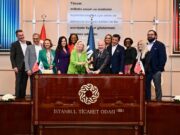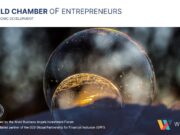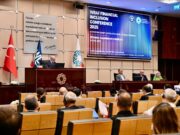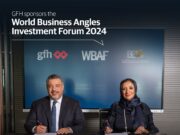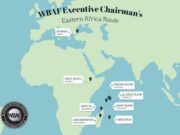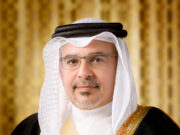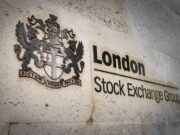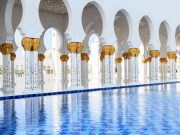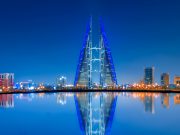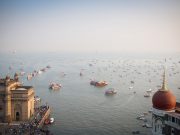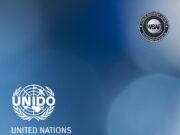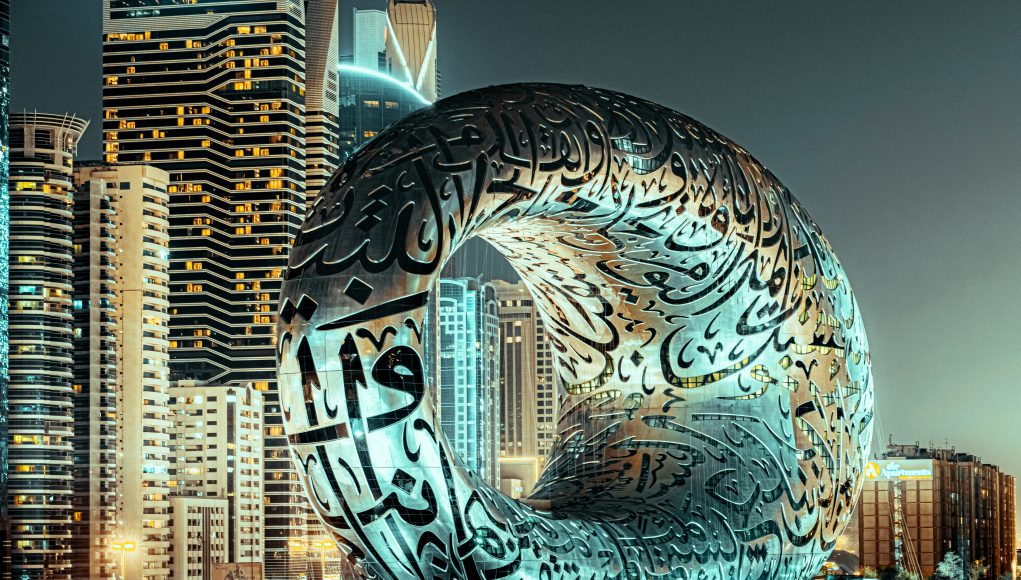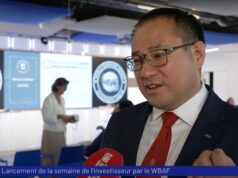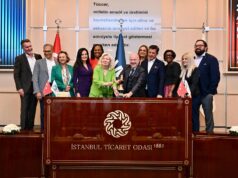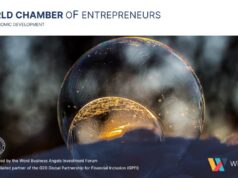Massimo Falcioni talks about the economic vision of the UAE for global startups, entrepreneurs, SMEs and angel investors.
Massimo Falcioni was a guest editor of the World Class Startup magazine’s special edition for the Global Fundraising Stage of the World Congress of Angel Investors, WBAF 2022. Angel Investor Review now shares his article with its subscribers online.
He is the Chief Executive Officer of the UAE Federal Export Credit Agency Etihad Credit Insurance and WBAF High Commissioner for UAE.
 The United Arab Emirates (UAE) has been making giant strides in its new phase of the growth strategy, which dramatically shifted the focus to the development of non-oil sectors by actively promoting the country’s industrial expansion, SMEs and foreign trade.
The United Arab Emirates (UAE) has been making giant strides in its new phase of the growth strategy, which dramatically shifted the focus to the development of non-oil sectors by actively promoting the country’s industrial expansion, SMEs and foreign trade.
The economic vision of the UAE President His Highness Sheikh Mohamed bin Zayed Al Nahyan is based on accelerating the implementation and development of an ambitious economic vision for the next 50 years and the Centennial 2071, which keeps pace with the fast-paced and multifaceted changes of the global economy.
His Highness’ vision is focused on relying on knowledge, innovation and investment in people, enhancing the role of the private sector as an active partner in the economic landscape, promoting investment incentives, and ensuring more economic diversification, while continuing to maximize utilization of oil and gas resources and enhancing the nation’s ability to produce more renewable and clean energy in the coming decades.
His Highness Sheikh Mohamed’s vision stems from the efforts and determination of the late Sheikh Zayed bin Sultan, and the late Sheikh Khalifa bin Zayed Al Nahyan, to tap into new resources and utilizing potential. Within this context, His Highness said during the opening of the World Governments Summit, “We think and plan for the next fifty years, and for the benefit of next generations, by building a diversified, solid and sustainable economy that does not depend only on traditional resources and opens promising prospects that contribute to strengthening the foundations and capabilities of the nation.”
Diversifying the UAE economy to boost non-oil revenue, developing it into a regional and global financial and tourism hub with best-in-class infrastructure and transportation networks and promoting the growth of a business-friendly environment were among the many milestones achieved by the UAE.As a result, the non-oil sector’s contribution to the UAE’s economy rose 72.3 per cent last year, up from 71.3 per cent in 2020, even amid the pandemic-induced stringent restrictions on mobility and large-scale disruptions in the supply chain. It underscores the impact of the country’s resilience and determined mission to propel the size of the economy to AED 3 trillion by 2030.
Emirates’ non-oil trade totaled AED 16.14 trillion over the last decade. In 2021 itself, the total value of re-exports reached AED 521.3 billion, a 27.7 per cent growth compared to 2020. Meanwhile, the country’s imports during 2021 amounted to AED 1 trillion, up 23.8 per cent against 2020 and about 7 per cent against 2019.
According to recent data, the non-oil trade volume of Abu Dhabi, the largest Emirate and capital of the UAE, stood at AED 61.522 billion in Q1 2022, a 15 per cent increase compared to the year-ago period. Exports were up 35 per cent at AED 24.449 billion, while imports grew 5 per cent to AED 25.374 billion in the first quarter. Re-exports registered an increase of 4 per cent, valued at AED11.698 billion compared to AED11.237 billion last year.
As His Highness Sheikh Mohammed bin Rashid Al Maktoum, Vice-President and Prime Minister of the UAE and Ruler of Dubai, said ‘the future looks beautiful and more sustainable’ for the national economy and its diversification policies.
“On a federal and local level, we work as one team to take our national economy to new heights. God willing, the UAE will remain a global economic capital for the coming decades. The goal is a quality of life that is the best in the world based on the most diversified and established economy,” His Highness said.
The outstanding growth of the UAE in every aspect of the socio-economic indexes is driven by the wise leadership of the UAE. For instance, under the Ministry of Economy, His Excellency Abdulla Bin Touq Al Marri, UAE Minister of Economy and Chairman of Etihad Credit Insurance Board of Directors, has been instrumental in strengthening the interdependence between the federal and local governments as well as strengthening the country’s long-standing relationship with global organizations, such as the World Economic Forum.
His Excellency Dr Thani bin Ahmed Al Zeyoudi, Minister of State for Foreign Trade and Deputy Chairman of Etihad Credit Insurance Board of Directors, leads the pack in overseeing the development of non-oil foreign trade sectors, the expansion of global partnerships, and enhancing the investment climate in the country.
On the other hand, under the Ministry of Industry, His Excellency Dr Sultan bin Ahmed Al Jaber, Minister of Industry and Advanced Technology and the UAE’s Special Envoy for Climate Change, supervises efforts to further expand the industrial development of the UAE and promote in-country value by leveraging technology as a key enabler, as we enter the Fourth Industrial Age.
His Excellency Omar Ahmed Suwaina Al Suwaidi, Undersecretary of the Ministry of Industry and Advanced Technology in the United Arab Emirates and Board Member at Etihad Credit Insurance, is influential in diversifying the national economy and strengthening the regional and global competitiveness of the UAE, especially through strategic partnerships and major development projects in the energy sector.
Their relentless pursuit to push the frontiers of growth and prosperity has been a catalyst for the astonishing progress the country achieved in recent years. Their futuristic vision and strategic mission are praiseworthy beyond measures as they prepare the UAE to create a world riding on the principles of corporation, growth and peace.
Ground-breaking initiatives for the comprehensive growth of all emirates
With the launch of its industrial strategies’ Operation 300bn’ and ‘Make it in the Emirates’, the UAE aims to position itself as a global industrial hub by 2031. It is a 10-year comprehensive strategy to increase the industrial sector’s contribution to the country’s GDP from the current AED 133 billion to AED300 billion.
Meanwhile, The ‘Projects of the 50’, announced during the golden jubilee celebration of the UAE last year, is a series of developmental and economic projects that focuses on accelerating the UAE’s transformation in all sectors and establishing it as an ideal destination for talents and investors.
And the UAE Centennial 2071 project was launched by the Cabinet to establish the UAE as the best nation on the earth when it marks the 100th year of the formation of the Union. Its objectives include the development of education and advanced technology while instilling an Emirati moral values system in future generations.
In addition to these, all the emirates have rolled out several strategies in various fields to achieve all-around development of the country. Here is a summary of some of the most important projects among them.
Abu Dhabi Economic Vision 2030
It aims to achieve effective economic transformation of the Emirate’s economic base and bring about global integration and enduring benefits to all in line with Abu Dhabi’s core commitment to building a sustainable, diversified, value-added economy by 2030.
Dubai 10X
Dubai 10X creates disruptive, exponential change in government entities, placing Dubai 10 years ahead of leading global cities. At Dubai 10X, the aim isn’t incremental innovation but to utterly disrupt the status quo to create future-ready operating models.
Fujairah 2040
Fujairah 2040 is based on a balanced approach toward sustainable economic growth and urban development – together with ensuring the conservation of the Emirate’s environmental and cultural heritage assets.
Ras Al Khaimah Energy Efficiency and Renewable Energy Strategy 2040
The strategy was set up in association with government entities at the local and federal levels to foster sustainability as a source of competitiveness for the Emirate by reducing the cost of energy and water for consumers.
Umm Al Quwain’s Sustainable Blue Economy Strategy
Umm Al Quwain launched its Sustainable Blue Economy Strategy during the World Government Summit 2022. The aim of the initiative is to improve investment attractiveness while developing the natural, cultural and human wealth of the Emirate.
Robust export credit ecosystem to drive nation’s future economy
As the UAE’s federal export credit company with the mandate to accelerate its economic diversification policies and non-oil trade, Etihad Credit Insurance is pulling out all the stops to ensure the success of the nation’s grand vision when it celebrates the 100th anniversary in 2071.
With a comprehensive array of trade insurance and project finance solutions, Etihad Credit Insurance protects UAE businesses against commercial and non-commercial risks—ranging from buyer’s insolvency to delayed payments and supply-chain disruptions to political risks adversely affecting the trade sector. Etihad Credit Insurance also helps domestic businesses achieve growth on a global scale with a wide range of market intelligence and ease of access to international trade, as well as facilitate commercial funding from banks and financing institutions to aid UAE businesses in effectively managing their cash flow and capital cycle requirements.
World Business Angel Investment Forum (WBAF) is an excellent platform for the UAE to reach out to key global decision-makers as part of the country’s diversification plan. This year’s Grand Assembly of the world’s most prominent angel investment forum will indeed facilitate a great occasion to empower global economic growth with the great insights of esteemed experts, entrepreneurs, and investors. AI

